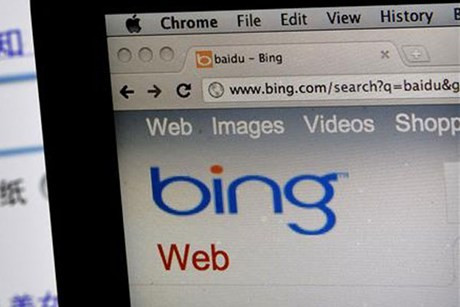Microsoft slammed for Bing's translation of Isis acronym 'Daesh' to 'Saudi Arabia'
Social media users have called for a boycott of Microsoft using the hashtag '#Microsoft_Insults_Saudi'.

Social media users in Saudi Arabia have called for a boycott of Microsoft after its Bing search engine erroneously translated Daesh, the Arabic acronym for the Islamic State (Isis), into "Saudi Arabia". Furious users in the kingdom quickly took to social media to voice their outrage over the Redmond company's mistranslation and called for a boycott of both Bing and Microsoft using the hashtag "#Microsoft_Insults_Saudi".
#مايكروسوÙت_تسيء_للسعودية
— ولــــه العبداللطي٠(@walah9999999) August 25, 2016
هذا المقطع المتداول عن الترجمة الخاصه بموقع ببنق
للاس٠تسيء لنا ولابد من مقاطعتها pic.twitter.com/r2VMyejAtP
#مايكروسوÙت_تسيء_للسعودية
— Ù…Øمد الشقاء (@Alshega) August 26, 2016
الشعب السعودي بصوت واØد:
تمت المقاطعة #bing 🎬@bing@bingads@Microsoft_Saudi @microsoft pic.twitter.com/IbFZERETAb
So @bing has equaled a search about ISIS (daesh) to Saudi Arabia. That's quite distressing. Microsoft and USA, thanks for your racism.
— Hash (@Purpastous) August 30, 2016
"As an employee of this company [Microsoft], I personally apologise to the people of great Saudi Arabia, which is a country very close to our hearts, for the unintentional error," Dr Mamdouh Najjar, vice president and national technology officer for Microsoft in Saudi Arabia, tweeted in Arabic. Microsoft has also reportedly apologised to the Saudi monarchy for the error.
Najjar told Huffington Post Arabi that the error could have been caused by Bing Translator's crowdsourcing function where if a large number of people - usually more than 1,000 people - suggest a specific translation, it is then automatically listed as the preferred possible answer.
اعتذر بأسمي شخصيا كموظ٠بالشركة للشعب السعودي العظيم وهذا البلد الغالي على قلوبنا جميعا عن هذا الخطاء الغير مقصود #مايكروسوÙت_تسيء_للسعوديه
— د. Ù…Ù…Ø¯ÙˆØ Ù†Ø¬Ø§Ø± (@Mamdouhnajjar) August 26, 2016
A Microsoft spokesperson told The Register that the company's product team fixed the automated translation error "within hours of learning about it".
Najjar later posted a screengrab on Twitter showing the that the error had been fixed, tweeting in Arabic: "The fix has been implemented and this could have been caused due to many reasons that we are working to find out."
تم تنÙيذ التعديل وقد يرجع ذلك لاسباب كثيرة نعمل على معرÙتها #مايكروسوÙت_تسيء_للسعوديه pic.twitter.com/SoDWHhOw77
— د. Ù…Ù…Ø¯ÙˆØ Ù†Ø¬Ø§Ø± (@Mamdouhnajjar) August 26, 2016
Major tech companies are constantly improving their translation software, which is usually built around phrase-based, pattern-tracking statistical machine translation (SMT), to provide quick and flawless results through machine learning and natural language processing. However, the automated translation programs have produced some inevitable, yet serious errors in the past.
In January, a Google Translate glitch translated the Ukrainian word for "Russian Federation" into "Mordor" - the fictional, evil land of the shadows from J R R Tolkien's Lord of the Rings - in Russian. While the word for "Russians" translated to "okkupanty" (occupiers), the last name for Russian foreign minister Sergey Lavrov appeared as "grustnaya loshadka" which means "sad little horse".
"When Google Translate generates a translation, it looks for patterns in hundreds of millions of documents to help decide the best translation," Google said in a statement to the Guardian at the time. "Automatic translation is very difficult, as the meaning of words depends on the context in which they're used. This means that not all translations are perfect, and there will sometimes be mistakes or mistranslations."
In November 2015, a culinary festival in the Galician town of As Pontes, Spain, celebrating its staple leafy green vegetable, rapini, or "grelo", was accidentally advertised online as a "clitoris festival", thanks to a Google Translate error.
Last year, Microsoft's real-time voice and text translator service Skype Translator accidentally turned simple Mandarin translations into a string of English swear words.
© Copyright IBTimes 2025. All rights reserved.





















